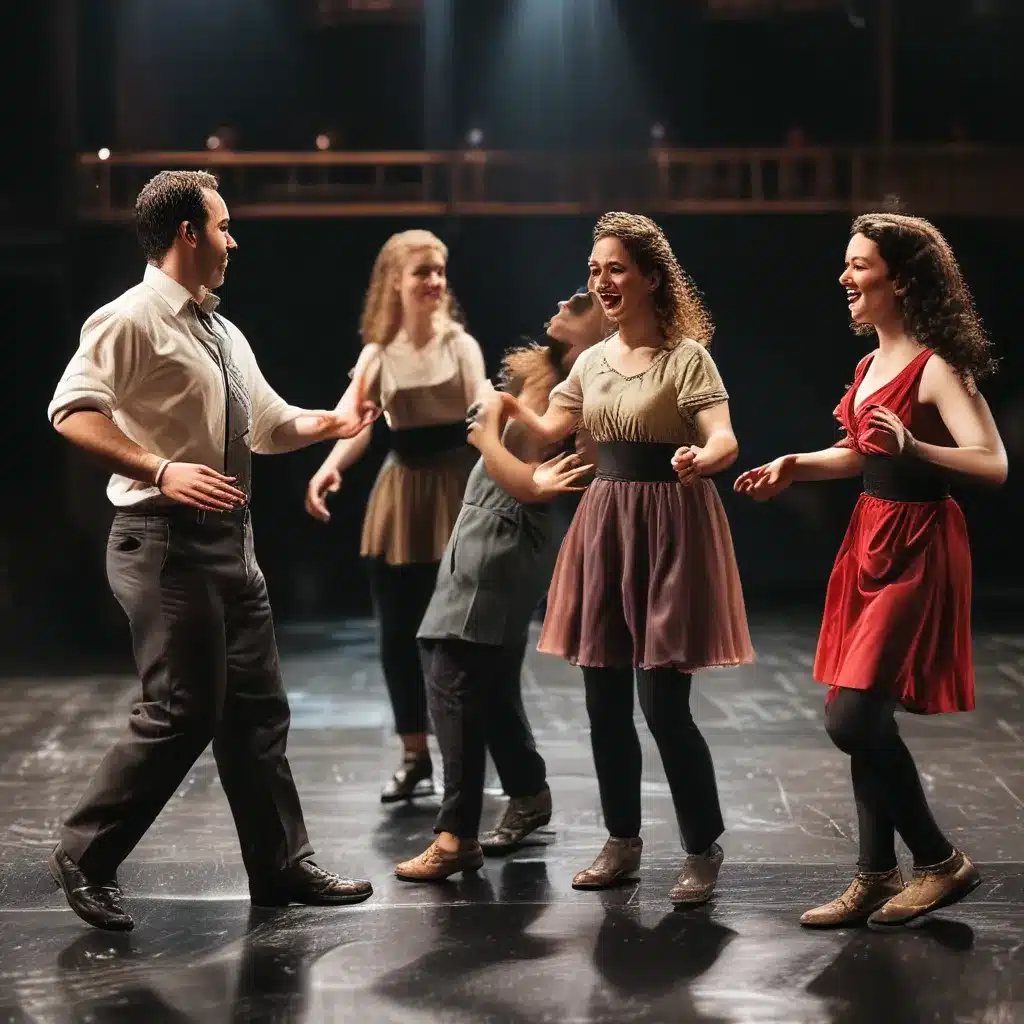
Unlocking the Power of the Ecosystem Economy in the Arts
As an ardent supporter of the performing arts, I’ve always been fascinated by the intricate web of relationships and interdependencies that make up the musical theater ecosystem. It’s a world where creativity, commerce, and community converge, and where the success of one entity is often inextricably linked to the success of others.
Recently, I had the opportunity to delve deeper into the concept of the “ecosystem economy,” a business model that emphasizes collaboration, value creation for all stakeholders, and a commitment to sustainability. As Frederik de Breuck eloquently explains, this approach recognizes that in today’s rapidly changing landscape, traditional models of competition and profit maximization are becoming increasingly unsustainable.
It got me thinking: how might the principles of the ecosystem economy be applied to the world of musical theater? Could fostering a more collaborative and interconnected ecosystem unlock new avenues for growth, innovation, and impact? After all, the performing arts have always been grounded in the power of collaboration, with artists, technicians, educators, and audiences coming together to create something truly remarkable.
Cultivating Connections in the Musical Theater Ecosystem
As the new Director of Innovation and Entrepreneurship Ecosystems at the Musical Theater Center, I’m excited to dive into this challenge head-on. Drawing on my background in economic development and strategic partnerships, I believe that by cultivating a thriving ecosystem, we can not only support the success of individual artists and organizations, but also amplify the collective impact of the musical theater community.
One of the key tenets of the ecosystem economy, as outlined by the Colorado Office of Economic Development and International Trade (OEDIT), is the importance of “interconnected networks working together to create value.” In the context of the Musical Theater Center, this might translate to fostering stronger connections between our educational programs, our professional performance stages, our community outreach initiatives, and our network of industry partners.
Imagine a world where aspiring performers not only hone their craft within our classrooms but also have opportunities to collaborate with seasoned professionals, experiment with new technologies, and engage with local businesses and community organizations. Or envision a scenario where our production teams work closely with local suppliers, artisans, and technical experts to bring our shows to life, creating a ripple effect of economic and cultural impact throughout the region.
Embracing Collaboration and Innovation
At the heart of the ecosystem economy is a culture of collaboration and a commitment to value creation for all stakeholders. This mindset aligns perfectly with the ethos of the performing arts, where the sum of the parts is often greater than the whole.
As the European Commission’s Knowledge Valorisation Platform highlights, arts and cultural institutions have a unique role to play in fostering knowledge valorization and innovation. By leveraging their creative capacity, their networks, and their ability to engage diverse audiences, these institutions can serve as catalysts for cross-pollination and the development of novel solutions.
Imagine, for instance, a collaboration between our musical theater students and local tech startups, where the students explore ways to integrate emerging technologies into their performances, while the startups gain valuable insights into the needs and preferences of arts-focused audiences. Or picture a partnership with local businesses and community organizations, where we co-create educational programs, community events, or even new musical productions that address pressing social issues and create meaningful impact.
Cultivating a Sustainable and Inclusive Ecosystem
Of course, fostering a thriving ecosystem is no easy feat. It requires a delicate balance of vision, strategy, and on-the-ground execution. But I’m confident that by embracing the principles of the ecosystem economy, we can not only support the continued growth and success of the Musical Theater Center, but also contribute to the long-term sustainability and inclusive development of the broader musical theater community.
As the OEDIT announcement notes, this new role at the Musical Theater Center represents a commitment to “catalyzing inclusive and innovative place-based entrepreneurial ecosystems and supporting startup growth.” By cultivating partnerships, nurturing business and community connections, and driving initiatives that support the diverse array of stakeholders in our ecosystem, we can help ensure that the benefits of our work are felt by all.
Perhaps most importantly, we must remain steadfast in our pursuit of innovation and our willingness to adapt to the ever-changing landscape of the performing arts. Just as the ecosystem economy emphasizes the importance of digital technologies and a commitment to sustainability, so too must we be willing to embrace new tools, new ideas, and new ways of thinking about the role of musical theater in our society.
Unleashing the Transformative Power of Collaboration
As I look to the future, I’m filled with a sense of excitement and possibility. The musical theater ecosystem is brimming with talent, creativity, and a deep passion for the arts. By harnessing the power of collaboration, innovation, and inclusive value creation, I believe we can unlock unprecedented opportunities for growth, impact, and transformation.
Whether it’s forging new partnerships with industry leaders, empowering the next generation of musical theater artists and innovators, or finding novel ways to engage and inspire our community, the work ahead of us is both challenging and exhilarating. But I’m confident that by embracing the principles of the ecosystem economy, we can create a vibrant, sustainable, and truly transformative musical theater ecosystem – one that not only delights and inspires audiences, but also serves as a beacon of creativity, collaboration, and social progress.
So let’s roll up our sleeves, put our heads together, and get to work. The future of musical theater is ours to shape, and I can’t wait to see what we’ll create together.

